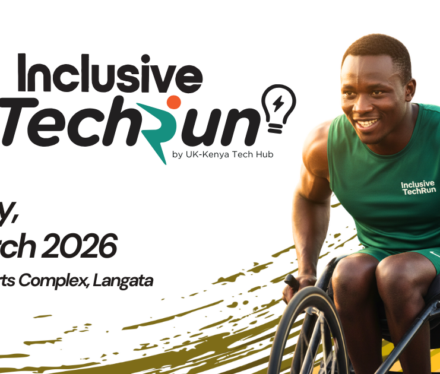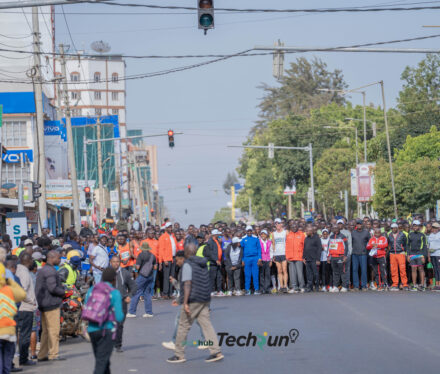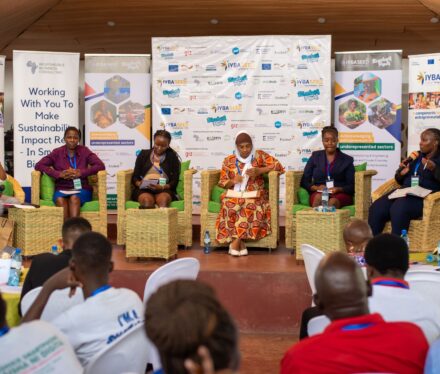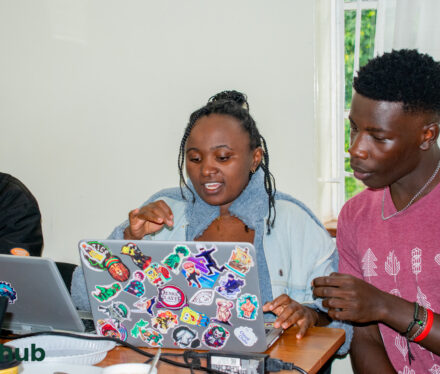It is often agreed that the economy is the backbone of a country’s development, as part of development economics thinking. So what do we mean when we talk about the economy, it is the system by which a country or county produces, distributes, and consumes goods and services. It includes all activities related to the use of resources—like labour, land, capital, and entrepreneurship—to meet people’s needs and wants.
Looking at the economy in this way, it becomes evident that business and society are at the heart of an economy: businesses to produce the goods and services; society: to provide the labour, capital and buy/consume the goods and services.
For Kenya and its counties, economic development is essential. Yet economic development relies on natural resources e.g. land, water, and people rely on natural resources too for life. Environmental degradation and climate impacts are pushing us to adapt different approaches how we produce and consume (economic activity) good and services, in a way that urgently takes greater responsibility to our finite natural resources.
What Is the Green and Circular Economy?
The Green economy is about doing business in a way that protects the environment.
This includes:
Using clean energy like solar or wind
Planting trees or farming in ways that protect the land
Making eco-friendly products
The Circular economy is about reusing, repairing and recycling so we create less waste.
For example:
Recycling plastic waste into new products such as paving blocks by Gjenge.
Using old tyres to make sandals
Turning food waste into compost for farming
Are Women and Youth Involved? The Statistics
Women and youth are already leaders in taking care of the environment at home and in their communities in simple routine activities such as feeding poultry kitchen leftovers, planting trees and conserving nature. More recently, they have taken up green entrepreneurship though the data is scarce but there is a clear sense of direction.
Positive
Majority of waste collectors and sorters are women and youth who mainly work as independent contractors selling their collection to the highest bidder
In rural Kenya, women are the stewards of the environment through sustainable agriculture and water conservation
Small scale women-led cooperatives are leading in sustainable farming practices
Women and children dominantly control domestic cooking energy and water usage hence readily adapt resource conservation efforts
Majority of sustainability training programmes today target women and youth to bridge the skills and knowledge gap
Negative
Many women and youth are not trained in green business or technology
Both women and youth dominate lowly ranked positions in the green and circular economy
Most women have limited awareness of the circular economy and its potential benefit
Why Is the Green and Circular Sector Important?
Broadly, the sector creates clean, safe jobs and helps fight climate change to preserve life on Planet Earth now and in the future. With Kenyan women and youth facing some of the highest unemployment rates in the world, perhaps going green could be the ultimate solution. Globally, the sector is expected to create over 100, million jobs while in Kenya about 240,000 jobs by 2030.
Going green encourage innovation and smart ideas among women and youth. As of 2025, there were a total of 219 startups in the clean energy sector alone with a majority led by youths. Women have also made their mark with notable women-led clean energy enterprises including Solar Freeze, Safi Organics, and Strauss Energy. Also, Kenyan women and youth have received global acclaims for their green innovations. for example, Esther Kimani was awarded by the Royal Academy of Engineers for her work innovative pest control.
Who Is Supporting This Work?
Efforts to drive and support a greener and circular economy are taking root, and here are some examples of initatives from diverse stakeholders and actors:
National Environment Management Authority (NEMA): The government agency that creates and enforces the legal and policy framework on environmental protection.
Kenya Climate Innovation Center (KCIC): incubates entrepreneurs with green business ideas—especially youth and women—to start and grow their work.
GIZ Kenya: The German development partner that among many things supports
small businesses in clean energy and green jobs across counties. For instance, GIZ partnered with Stanbic in the WE4D program to empower 300 women-led green energy businesses.
IYBA-SEED which is funded by the development arms of the governments of France, Netherlands, Slovakia, Belgium and Germany supports and funds women and youth entrepreneurship programmes that include green economy and sustainable practices.
Entrepreneurship Support Organisations (ESOs)
ESO are driving community and local empowerment of youth-led and women-led green and circular economy start-ups through incubators such as Nakuru Box, WiseHub and Eldohub For example, Eldohub commitment to the green and circular entrepreneurships is captured by one of their slogans, “Gold for Prosperity, Green for Growth” which targets incubating startups in the sector. WiseHub has also made its mark by nurturing young entrepreneurs in the sector.
How to Support Women and Youth to Join the Green Economy Sector
Governments, private sector, development organisations, and NGOs have an equal role to play in supporting this agenda of empowering women and youth entrepreneurship in the green economy. The strategies include:
Teach green skills.g. the integrate green and circular thinking and practice into education at all levels, and focus on these skills in tertiary education like technical and vocational training.
Give access to needed resources to catalyse green innovations and enterprise e.g. Youth Fund that in part targets green startups
Showcase local success stories such as the IYBA-SEED program, BiasharaPawa and organize eco-business events e.g. the 2025 Eldoret agriculture show that promoted climate-smart agriculture
Create public awareness on responsible consumption and circular practices e.g. better behavior practices in public and household waste management as in line with the gazette National Environmental Management Authority (NEMA) national waste management regulations 2024.
Development in a climate and nature strained country
Kenya is very vulnerable to climate change geographically, socially and economically. A green and circular economy is the strategic development approach to creating jobs, skills, innovative products and services, especially for women and youth that better manage Kenya’s finite natural resources, in a changing environment and demographic landscape.






